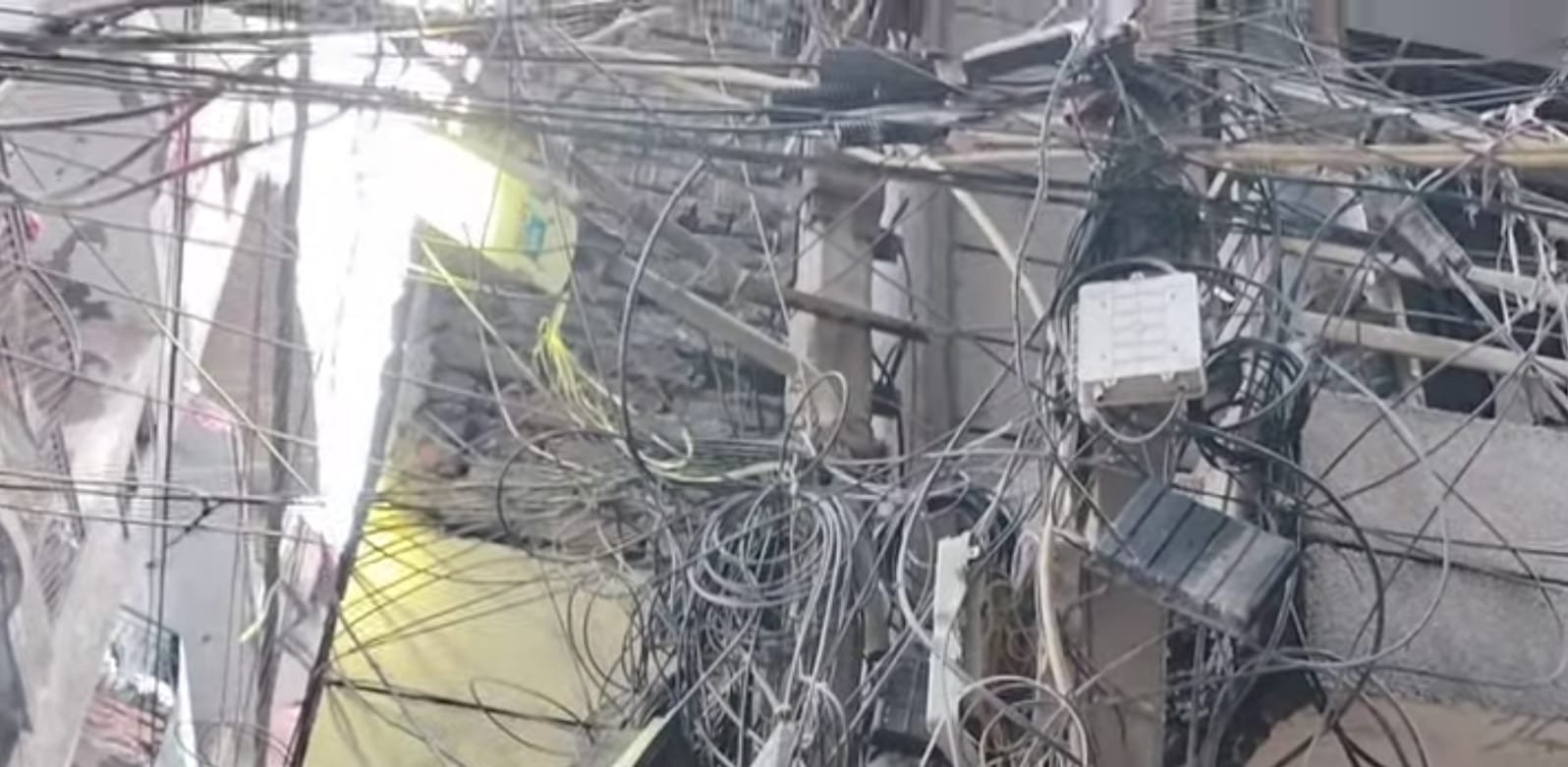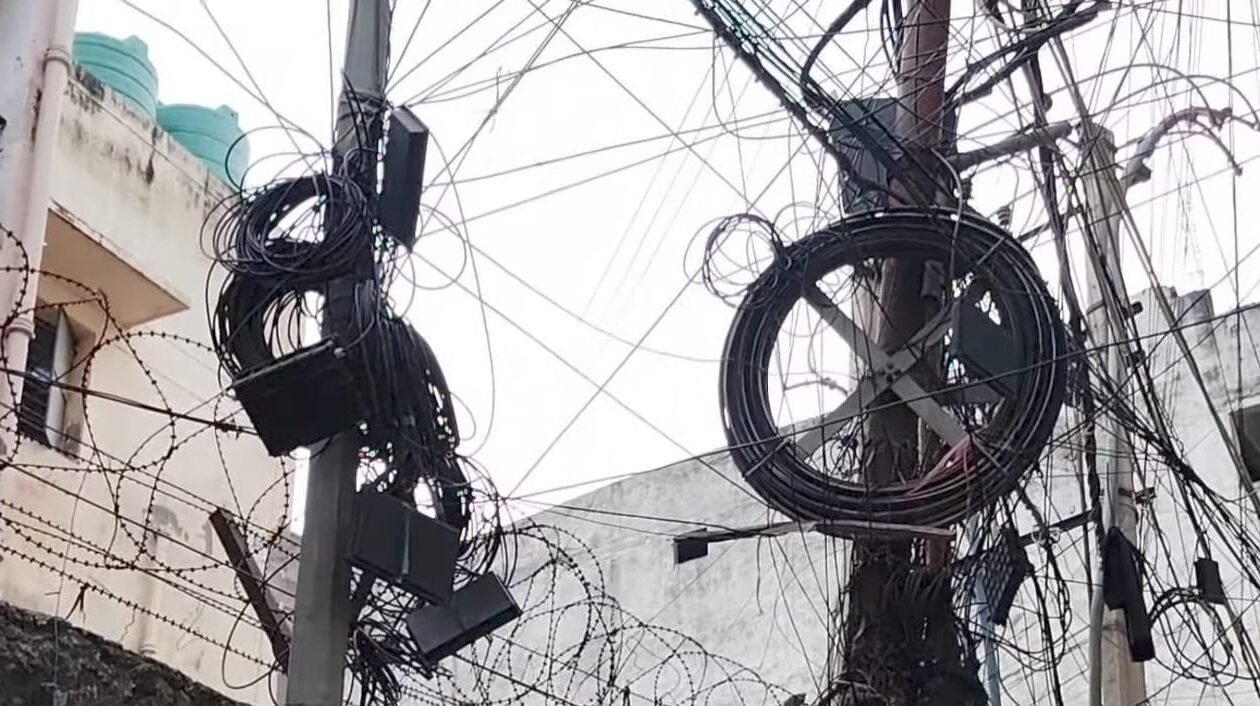Written by: Altamash Khan
A significant disruption to internet connectivity in the Okhla area has occurred following the actions taken by the BSES (BSES Rajdhani Power Limited), which has led to widespread chaos, particularly affecting Wi-Fi services. The issue arose after BSES reportedly cut down several Wi-Fi cables and wires that were allegedly being run on BSES poles without proper authorization. The region of Okhla, a densely populated area in South Delhi, is home to a mix of residential, commercial, and industrial zones. Over recent years, the use of Wi-Fi services in this area has grown substantially, with numerous internet service providers (ISPs) setting up infrastructure to meet the increasing demand for affordable internet access. BSES, a major electricity distribution company in Delhi, is responsible for maintaining the electric poles and power lines in the area. Many local ISPs and cable operators have been using BSES poles to install their internet and telecommunication cables, sometimes without obtaining the necessary permissions. This practice, according to BSES, violates their infrastructure policies and poses significant safety risks.

The chaos began when BSES initiated a drive to remove unauthorized cables from their poles, citing the misuse of their infrastructure by several ISPs. On the day of the incident, BSES workers reportedly cut down several Wi-Fi and internet cables running along their poles across Okhla. This action led to widespread internet outages across the area, affecting thousands of households, businesses, and industries. Residents and local business owners expressed frustration and confusion, as many were suddenly disconnected from essential services, including online education, remote work, and business operations that relied on internet connectivity.
BSES stated that the unauthorized use of its poles for running Wi-Fi cables was a safety hazard. The electrical poles are designed to carry electricity wires, and the presence of internet and telecommunication cables without adequate safeguards can increase the risk of electrical faults, fires, and other dangerous incidents. Moreover, BSES claimed that the overloading of their poles with unauthorized cables added unnecessary strain to their infrastructure, which was primarily intended for electricity distribution. They justified their actions by stating that such activities could not only damage their property but also lead to power disruptions for the residents.
The sudden removal of the Wi-Fi cables left several areas of Okhla without internet access. Among the most affected were students who relied on online classes, professionals working from home, and small businesses that depend on the Internet for daily operations. Local ISPs also faced significant challenges as they scrambled to restore connectivity. Many providers claimed that they were not given any prior notice of the BSES action, which left them with little time to take preventive measures or make alternative arrangements.
Social media and local community forums were flooded with complaints about the outages, with residents demanding immediate solutions. The lack of communication between BSES and the affected ISPs further fueled the frustration of the residents. In response to the chaos, several local ISPs lodged complaints with the authorities, stating that they had not been given adequate time to relocate their cables or obtain proper permissions. They argued that BSES’ actions were heavy-handed and caused unnecessary inconvenience to thousands of people.
The Wi-Fi chaos in Okhla highlights the need for better coordination between utility companies and ISPs to ensure that essential infrastructure is used responsibly and safely. While BSES’ actions were driven by concerns for safety and infrastructure integrity, the lack of communication and the sudden disconnection of vital services have caused significant inconvenience to residents and businesses.
Moving forward, a more structured approach will be necessary, including the formalization of agreements between ISPs and utility companies, as well as clearer guidelines for the use of public infrastructure for telecommunications purposes. Efforts should also be made to ensure that future actions are taken with adequate notice and communication to minimize disruption to essential services. The incident serves as a reminder of the growing dependency on digital infrastructure and the importance of safeguarding both utility services and internet connectivity in modern urban life.
About the Writer:
Altamash Khan is a contributing journalist who completed his journalism studies at the prestigious Aligarh Muslim University. He has over half a decade of experience writing on a wide range of topics, from politics and social issues to technology and Brands. In addition to his journalism work, he works as a Public Relations and Brand Strategist, helping communicate Brand messages to the World. He would love to hear your thoughts on this issue. Leave a comment below or reach out via the social media handles.


